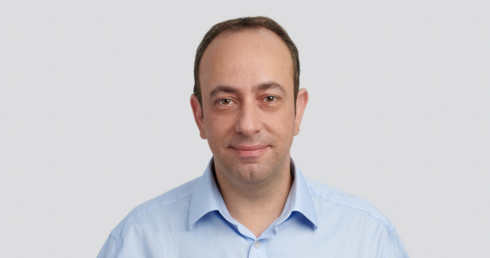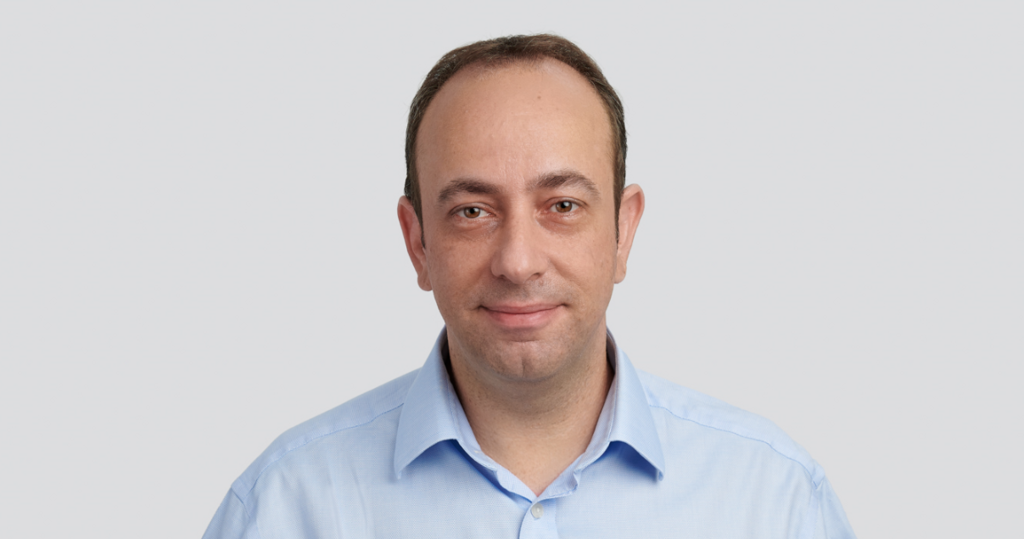
2025 VC Survey
“2024 underscored Israel’s reputation for resilience and ingenuity”
Grove Ventures General Partner Lior Handelsman has joined CTech to share vital ideas about how Israeli tech can compete in 2025.
“We saw a notable uptick in entrepreneurial activity emerging from this difficult environment,” said Lior Handelsman, General Partner at Grove Ventures. “The Israeli tech ecosystem’s celebrated adaptability, combined with the evident potential of the AI revolution, encouraged numerous skilled professionals to launch new ventures. Consequently, by the year’s end, a wave of fresh early-stage startups had formed in response to shifting market dynamics and newfound opportunities.”
Handelsman joined CTech for its 2025 VC Survey to share insights on how the firm has tackled some of the challenges of the last year, and more on how the Israeli ecosystem can recover and thrive for 2025.
“Despite the obstacles and uncertainty brought on by the conflict, 2024 underscored Israel’s reputation for resilience and ingenuity,” he added. “The tech community came together, adapted swiftly, and transformed adversity into a catalyst for innovation and entrepreneurial energy.”
You can catch the whole interview in below.
Fund ID
Name of fund/funds: Grove Ventures
Total sum of the fund: $513M
Partners: Dov Moran, Lotan Levkowitz, Lior Handelsman, Renana Ashkenazi
Notable/select portfolio companies (active): Wiliot, ActiveFence, NoTraffic, Env0, Opmed, Lava
Notable exits: RapidAPI
2024 is over. How can you summarize it in terms of the Israeli high-tech industry?
2024 was undeniably a turbulent year, marked by a significant security conflict that weighed on the economy toward the tail end of an economic reset period. This disruption affected day-to-day operations for many businesses—particularly those with international clients or supply chains—and led to a slowdown in investments for several months. However, history has shown that such challenging periods can also spark innovation and resilience.
Indeed, we saw a notable uptick in entrepreneurial activity emerging from this difficult environment. The Israeli tech ecosystem’s celebrated adaptability, combined with the evident potential of the AI revolution, encouraged numerous skilled professionals to launch new ventures. Consequently, by the year’s end, a wave of fresh early-stage startups had formed in response to shifting market dynamics and newfound opportunities.
Despite the obstacles and uncertainty brought on by the conflict, 2024 underscored Israel’s reputation for resilience and ingenuity. The tech community came together, adapted swiftly, and transformed adversity into a catalyst for innovation and entrepreneurial energy.
Looking ahead in 2025 - What challenges and opportunities await the Israeli high-tech sector in the coming year, and how are you, as investors, preparing for them?
Challenges
- Global Economic Uncertainty: Although markets stabilized toward the end of 2024, interest rates remain relatively high, dampening consumer spending and corporate IT budgets.
- Talent Competition: Top engineers and data scientists are in short supply, driving up recruitment costs.
- Geopolitical Tensions: Ongoing regional and global uncertainty can impact international trade and investor confidence.
Opportunities
- AI: The momentum behind generative AI continues to grow, offering transformative possibilities in sectors like cybersecurity, fintech, and healthcare. Scaling AI also drives demand for advanced hardware and software infrastructure, paving the way for new startup opportunities.
- Deep Tech: Israel’s R&D strengths position it well for breakthroughs in quantum computing, advanced chip technologies, and other core innovations that underpin the next wave of AI and data-driven solutions. Investments here can fuel substantial growth across the tech ecosystem.
- Health & Biotech: Telemedicine, personalized diagnostics, and AI-enabled drug discovery remain high-potential areas in which Israeli startups can leverage robust scientific expertise and strong partnerships with global pharmaceutical and healthcare providers.
How We’re Preparing as Early-Stage Investors
- Actively Seeking Deep Tech Expertise to stay at the forefront of emerging trends.
- Building a Global Network of experts and follow-on investors to support portfolio growth.
- Staying Close to Customers to anticipate market needs and guide our startups toward real-world impact.
How will new American leadership affect the global high-tech industry or economy? And where does this place Israel and its entrepreneurs?
A change in U.S. leadership often comes with new policy priorities—potentially unlocking additional federal funding or tax incentives for technology companies and investors. This renewed support can spur tech adoption and create fresh business opportunities. For Israeli entrepreneurs, the ripple effect includes:
- Increased Funding: Federal grants and large-scale projects may prioritize companies with strong R&D and technical expertise—exactly where Israel excels.
- Easier Market Access: A friendlier diplomatic posture or new trade agreements could lower barriers for Israeli products and services, making it easier for startups to enter or expand in the U.S. market.
- Shifted Competitive Landscape: American policy shifts often redirect capital and attention toward specific technologies. Israeli startups aligned with these emerging priorities will likely see more inbound interest and investment.
What are the three most important things the Israeli government should do today to accelerate the high-tech engine in the coming year?
- Bolster R&D Incentives: Increase grants and tax breaks for companies focusing on deep tech, AI, and other transformative sectors, ensuring startups remain globally competitive.
- Expand Tech Education & Reskilling: Support programs that train and upskill the workforce, especially in data science and advanced engineering.
- Streamline Regulatory Processes: Simplify company formation, labor, and immigration rules (especially for foreign talent) to maintain Israel’s edge as a global tech hub.
Are there new sectors you see as relevant? Are there any fields you anticipate will weaken significantly in the coming year?
Relevant Sectors:
- AI Agents: Rapid developments in large language models and natural language processing continue to open new use cases for intelligent AI-driven agents.
- Software Infrastructure (SW Infra): As AI adoption grows, demand for cutting-edge tooling, data pipelines, and scalable cloud platforms will surge.
- Robotics & Automation: From manufacturing lines to last-mile delivery, robotics and automated solutions are poised to streamline operations in multiple industries.
- Health & Bio: The convergence of biotech, personalized medicine, and AI-driven research remains a powerful engine of innovation, attracting significant investments and attention.
Fields That May Weaken:
- Automotive: With economic uncertainty and evolving consumer preferences, growth in the automotive sector (including traditional car manufacturing and related technologies) may slow.
- Consumer-Focused Apps: Facing tighter budgets and intense competition, purely consumer-oriented solutions lacking a clear path to revenue or differentiation may struggle to sustain momentum.
Is Israel missing out on the AI revolution in the global arms race? If not, what should the local industry focus on to join the global race?
Israel is definitely not missing out. The country’s deep-rooted expertise in cybersecurity, data science, and algorithmic research positions it well in the global AI race. To stay ahead, Israeli startups should:
- Invest in Core Research: Collaborate with academic institutions and research centers to push the boundaries of machine learning, NLP, and computer vision.
- Focus on Specialized Applications: Israel’s strength lies in domain expertise (e.g., security, FinTech, DevOps). Applying AI to these verticals can yield world-class solutions.
- Develop Scalable Infrastructure: AI success depends on robust data infrastructure and cloud capabilities—Israeli companies should build partnerships that enhance these capabilities.
Could the global IPO drought end in the coming year?
We’ve seen signs of recovery toward the end of 2024, particularly with several high-profile IPOs in the U.S. and Europe. While a full-scale resurgence of IPOs will depend on global economic stability and investor sentiment, we are cautiously optimistic that 2025 will see an uptick in public listings—especially for profitable companies or those operating in hot sectors like AI and biotech.
From an investor's perspective: will the coming year be better for early-stage startups or more mature companies?
We’re seeing favorable indicators for both. On the early-stage side, corporate and VC investors remain eager to fund innovation—particularly as the AI revolution gathers steam—creating a relatively supportive environment for emerging startups. Meanwhile, later-stage companies, which faced funding headwinds in the past year, stand to benefit from improving sentiment and “clearing skies” over the Israeli tech ecosystem. As investor confidence returns, these more mature ventures may find capital-raising conditions easing, putting them on stronger footing moving forward.
Did you raise fund money in 2024 for an existing fund or a new one? What are your expectations regarding this matter for 2025?
We did not raise funds for Grove in 2024.
How many investments did you make in 2024, and how does it compare to previous years?
In 2024 we’ve made 8 investments. This is the same as last year.
Provide an example of an intriguing investment you made in 2024. What sets this company apart, or what is distinctive about its sector?
We’ve invested is Majestic Labs, a stealth mode company that is developing an AI-centric solution for data center infrastructure. Obviously, this sits at the core of our belief that the AI revolution will require the right infrastructure to support its growth
Two notable companies that you think will thrive in 2025. These can be from your portfolio or not.
Company Name: Lava Power
Sector + description of the product/service: Lava is developing super efficient heat engines which help make data centers more efficient by harvesting waste heat and converting it to usable energy.
Investment amount + total: total raise of > $15M
Founding Year: 2020
Reasoning why this is their year: Lava Power’s heat engines are perfectly suited to address the convergence of large-scale infrastructure investments, rising energy costs, and a still-existing climate-positive mindset. This will allow the company to deliver operational savings and sustainability benefits to an evolving global market.
Company Name: Opmed.ai
Sector + description of the product/service: Opmed.ai offers a SaaS solution designed to enhance operational efficiency in healthcare organizations, with a focus on optimizing operating room management.
Investment amount + total: $15M
Founding Year: 2021
Reasoning why this is their year: Building on tangible customer wins the company can capitalize on rising market tailwinds in healthcare—driven by the ongoing digitization of patient care and a growing emphasis on AI for operational efficiency. In 2025, these factors will converge to propel the company toward accelerated growth and greater impact across the industry.













